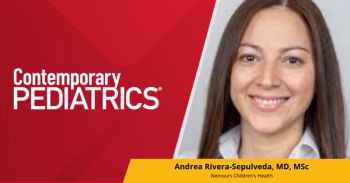
Children beyond our reach
Editorial about PROS survey and focus on the children in Africa who unfortunately cannot benefit from what pediatricians have to offer in US.
It comes as no great surprise that there are variations in the health of children in different parts of the world. Despite that general awareness, I couldn't help being struck today by two items that came to my attention.
The first is an article in Ambulatory Pediatrics (Chien A et al: 2006;6:352). Pediatricians involved in the Pediatric Research in Office Settings (PROS) network were asked in a mail survey to list the pediatric clinical or practice-related primary care issues that have not been subjected to adequate research. After pouring over 1,109 items from 495 pediatricians, there were six areas mentioned by at least 10% of the respondents. They include the following:
Now, if you're practicing pediatrics in the United States, you will likely agree that these are all important areas for research. The second item, however, provides a contrast that is difficult to ignore. A pediatrician who was a resident in our program, and who is now working with an agency that provides medical care in sub-Saharan Africa, sent an E-mail message recounting events during a recent week. She described her efforts to help a mother who had just given birth to a 1.5-kg premature infant, and whose toddler was with her in the local hospital. The mother had pneumonia and a wound infection, and the toddler was naked and starving. There was no one to tend to either of them. The meager nursing staff was unable to take the time to feed the infant, let alone the toddler, and though antibiotics had been prescribed for the mother, the frequency with which they were being given was only a fraction of that for which they were ordered. The infant developed a fever, but in attempting to care for him it became clear that he was not the only newborn in need of attention.
Dr. McMillan, editor-in-chief of Contemporary Pediatrics, is professor of pediatrics, vice chair for pediatric education, and director of the pediatric residency training program, Johns Hopkins University School of Medicine, Baltimore.
Newsletter
Access practical, evidence-based guidance to support better care for our youngest patients. Join our email list for the latest clinical updates.








